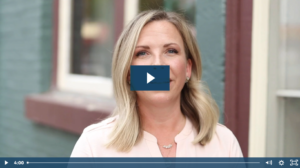Share:
A better name for natural immunity is “convalescent” immunity. This is the immunity conferred by getting sick.
Some of the misconceptions about convalescent immunity stem from a preliminary study (not yet peer-reviewed) released last month that compared thousands of Israelis who had been infected or vaccinated in January or February. The vaccinated group had a 13-fold higher risk of breakthrough infection from the delta variant between June and mid-August than the previously infected group. It is worth noting that the pre-print study from Israel has some methodologic flaws; within the infectious disease community there is question about whether it will ever be published formally.
Nevertheless, these results don’t mean you should opt for getting infected over getting vaccinated. The risk of severe illness, death and “long-haul” COVID-19 from natural infection far outweighs the risk of any serious side effects from the vaccines. This makes vaccine-induced immunity preferable to convalescent immunity under almost all circumstances. (Exceptions are those with absolute contraindication to vaccination, of which there are very few.)
The very rare side effects such as blood clots (Johnson & Johnson), and myocarditis/pericarditis (Pfizer/Comirnaty and Moderna) are much more likely to occur with the infection itself than from vaccination. In fact, the risk of vaccination can be orders of magnitude lower than the risk of infection.
We know that reinfection or repeat illness from COVID-19 does happen, including after natural infection. And that those who were vaccinated following recovery from their illness were 2.3 times less likely to get COVID-19 again than those people who relied on convalescent immunity alone.
Similarly, vaccination following infection broadens the depth of the immune response and more protection against variants. Generally speaking, the more times the immune system has a chance to safely respond to a pathogen, the better the immune response to it in the future.
Booster shots following vaccination act similarly. Having a mild case of COVID-19 the first time around has been linked to increased risk of reinfection, and having a mild case does not predict that future infections will also be mild. We have seen cases of severe disease from COVID-19 in patients who recovered from mild infection earlier in the pandemic.
There are no data to show that getting vaccinated after an infection causes any harm. A Centers for Disease Control and Prevention study of thousands of Kentucky residents who were infected with COVID-19 last year found that those who did not get vaccinated after being infected were more than twice as likely to contract COVID-19 than those who were fully vaccinated after recovering from COVID 19.
What all this means is that it is especially risky to rely on convalescent immunity if someone has not had the disease, but it is also risky to rely on convalescent immunity if you have had the disease. Whether you have had COVID or not, it makes sense to get vaccinated.
If you have a question, please contact the author or relevant department directly.
Comments are closed.




3 Comments.
Thank you for this very informative article, I feel that this particular information is very important because of the amount
of misinformation that is circulating around communities. It is so vital to be correctly informed concerning matters of Covid-19. Non-peer reviewed studies should not be viewed as concise or necessarily true or even accurate information.
Very good information, but would be helpful if you listed the peer review studies this information was derived.
Regarding the Kentucky study which is being referred to, it included 738 people, not thousands as stated above. Additionally, it is was not peer-reviewed, and looked at patients over a 2 month period of time.
Here is Paul Offit, a Physician and professor at University of Pennsylvania, member of the NIH working group on vaccines, and member of the FDA’s advisory committee talking about natural immunity regarding Covid stating vaccines could not work unless natural immunity works. The way vaccination works is to induce the bodies natural response to a pathogen. https://www.siriusxm.com/clips/clip/e7adfb79-ca09-4825-b8ca-1aa0c124dea0/0ffae4f2-8096-4218-9982-19bdaeb087c1
Additionally, it is important to note that so many of the studies referred to in the media look at circulating antibodies which have not been a reliable indicator after infection or vaccination. T cells have shown to play a critical role in long-term COVID protection. It is important to recognize that relying on in vitro vs. in vivo studies, often cannot account for the complexity of our immune system which, in natural infection, induces hundreds of antibodies against all proteins of the virus, including the membrane, the envelope, the nucleocapsid, and the spike protein.
A study comparing vaccinated, covid-naive breakthrough cases to non-vaccinated covid-recovered reinfections(like that Israeli study mentioned above that many experts including Asante’s own infectious disease MD are citing) would need to be performed to show the effectiveness of natural immunity vs vaccine immunity. These studies are conveniently not available.